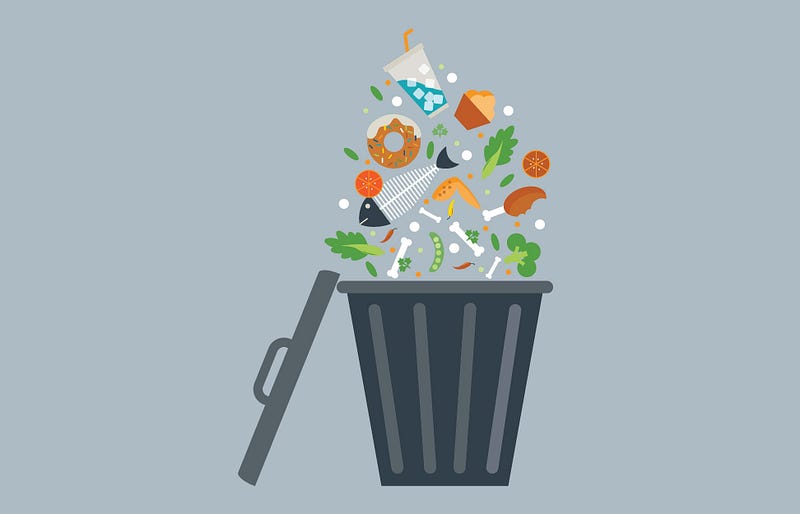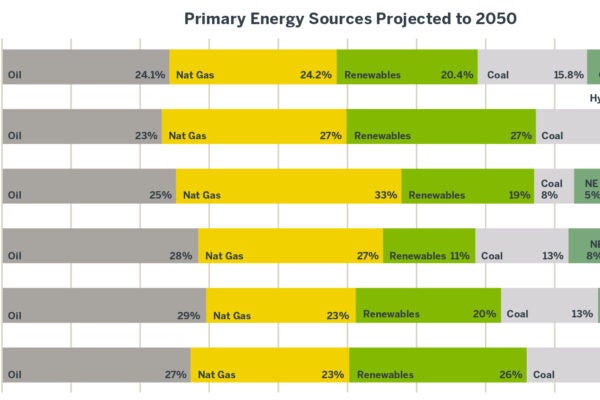A Dirty Secret About Cleaning Your Plate
Childhood lessons about not wasting food can backfire on public health, but smart marketing can undo the damage
Based on the research of Raj Raghunathan

Many an American child gets programmed to avoid wasting food by eating everything on their supper plate. Often, the lesson is reinforced with a parent’s reminder: Think of starving children in other countries.
Raj Raghunathan grew up in another country, and he heard it too. “It seems like a universal phenomenon,” says the marketing professor at Texas McCombs.
As an adult, though, Raghunathan noticed a downside to the taboo. Friends who obeyed it were often overweight. With obesity a major public health problem, he says, “I wondered whether this value of not wasting food could have the side effect of causing people to gain weight.”
In new research, he and co-author Deepa Chandrasekaran, an associate professor of marketing at The University of Texas at San Antonio, developed a way to measure the attitude they call “food waste aversion,” and they find a connection to putting on extra pounds.
If health authorities are made aware of the link, Raghunathan says he hopes they can create targeted marketing messages to help people break the cycle and keep their weight under control.
“There should be an awareness that this seemingly noble belief can have detrimental side effects.” — Raj Raghunathan
Assessing Avoidance
Raghunathan and his co-author’s first step was to gauge, using a questionnaire they developed, both how strong and widespread the attitude was.
The researchers recruited 147 U.S. participants online and showed them six statements about avoiding food waste including “Growing up, I was taught not to waste food by my parents” and “I always eat whatever is put on my plate.” Participants rated their reactions on a scale from 1 to 7, with 7 being the strongest agreement.
As it turned out, they agreed heartily: Most participants were concerned about leaving food uneaten. The average score for food waste aversion was 5.33.
To test whether the belief was worldwide, the researchers ran the same questionnaire in India. There, 116 subjects averaged a higher score: 6.02. “India is a developing country,” Raghunathan says. “In countries where resources are scarcer, we would expect the belief to be even stronger.”
Cleaner Plates Mean More Weight
How might waste avoidance affect waistlines? The researchers next surveyed 1,673 subjects in the U.S. and India. Besides measuring food-waste-aversion attitudes, they calculated each person’s body mass index, a ratio of weight to height.
They found significant ties — particularly in the U.S., where every 1-point increase in food waste aversion corresponded to a 2-point increase in BMI. Those who rated 6 on the scale had an average BMI of 25, the borderline of being overweight.
“It shows that to a certain extent, being overweight can be culturally determined,” Raghunathan says.
“It’s a good value in general not to waste food, but it’s possible to subscribe to it too much.” — Raj Raghunathan
The Fridge is Your Friend
If the study shows how a virtue can turn into a vice, it also hints at how to turn it back. Instead of eating everything at one sitting, people with a distaste for waste can try an alternative strategy: saving leftovers for later consumption.
Those who refrigerated leftovers put on 25% less weight than those who did not, the survey showed. To Raghunathan, that suggests that instead of trying to talk people out of childhood beliefs, a smarter public health message is to channel them in healthier directions.
“The best way is to suggest alternative ways of not wasting food,” he says. “You might spread a meal out over multiple consumption occasions.
“If you get a lot of your food from restaurants, you can doggie bag what you don’t eat. If you’re concerned about other people going hungry, you can even give it to homeless people. That way, you’re not just avoiding over-consumption, you’re actively helping other people.”
Another tactic is one Raghunathan himself employs: portion control. “I try not to put food on my plate that I’m not going to finish,” he says. “I tell myself it’s OK to serve myself more if I’m still hungry after I finish the smaller portions. Usually, though, I’m satisfied.”
That’s a message more people need to hear. Such marketing might be most effective, he adds, when targeted to groups especially at risk of guilt-driven overeating. He points to new mothers who cook for their babies.
“You want your child to be well-nourished, and you tend to overprepare,” Raghunathan says. “If you believe strongly in food waste avoidance, you might eat the extra yourself. New mothers often find it difficult to get rid of excess weight gained after pregnancy. This message might help them.”
“The Association Between the Attitude of Food‐Waste‐Aversion and BMI: An Exploration in India and the United States” is published in the Journal of Consumer Psychology.
Story by Steve Brooks
About this Post
Share:


